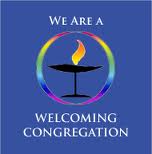Presenters
Index Page
Barker, Geraldine
Bodner, Mark
Burton, Laura
Castleberry, Kasey
Davis, Sam
Davis, Terry UU minister
Frost, Edward UU minister
Kibler, Myra
Nicholson & Brown
Sally Pamplin
Robison, Gerald
Seidman, Karl
Sheber, Larry
Sherod, Bob
Simmons, Antoine
Tremblay, Alexandra Immunologist
Waddell, Donna
Walker, James
West, Herb & Myrna
Woehr, Terry
Wood, Bruce
Other Sources
What Do You Do with the Bubble Bath?
By Donna Waddell
This presentation was delivered to the congregation of Mountain Light UUC on 2008 September 28 and was kindly provided by the speaker.
I was taking a long luxurious bubble bath after an especially long run a couple of weeks ago. I was grateful for the bubble bath, but have no memory of how I got it. I'm sure it was a generic gift. And, I'm glad I kept it. But, often that is not the case. I have a slew of "things" that are pushed to the back of the cabinet under the bathroom sink and they fill closet shelves. I don't know what to do with them. Occasionally someone will collect toiletries for the homeless or for a domestic violence shelter and I can rid myself of some of them and reclaim precious space. It seems a shame to immediately discard a generic gift. After all, I may someday in the distant future take a bubble bath – as indeed I did – eventually. I also don't want many of these things to end up in a landfill. So, I can store it, re-gift it and be a perpetrator of the generic gifting phenomenon, or I could give it back to the giver. What a radical idea! I confess I have never done the latter.
The Christmas season or the Winter Holidays are fast approaching: The season of the obligatory gift. Have you ever stocked up on guest soap or something equally banal, "just in case?" I'm sure you have received the generic gift, perhaps it was even expensive, but it didn't reflect any knowledge of who you are as an individual. Perhaps you have been re-gifted or passed on the generic gift to another. Who would have ever guessed that the term "re-gift" would have ever entered our lexicon? Perhaps you received an unexpected gift and felt bad that you did not anticipate it and have one to exchange. I want us to share our stories about these kinds of situations. Maybe we can share some good ideas about how to handle them.
IMHO gifts should come from the heart and not be about "the season." I want my relationships to be honest and authentic. I don't want to give or receive because of the date on the calendar and some retailer's last quarter of profits. The best gift I get each Christmas is the one I give myself.
How can our relationships be genuine if we go through the motions of buying, giving, and receiving meaningless gifts? I admit that the marketing of the Christmas Season is well done. I almost begin to believe that if there had been a Publix Supermarket when I was growing up, we might have actually experienced some genuine love around the dinner table.
And, I fully support the concept of giving; just giving to whom we want when we want to and not because we are supposed to.
Another term for gift is "present." In "I give you a birthday present." But I believe the real present is to be present. To be connected. To be there for the person and to know who they really are. To be in the moment with them:
Real, genuine, authentic
Gift, offering, reward
Honest, truthful, straightforward, direct
How do these words resonate with you?
What have been your experiences?
Have you found some resolution to this dilemma or do you even see this as a problem?
Being Genuine: Stop Being Nice, Start Being Real
Book review: In this enlightening book, Tom d'Ansembourg challenges readers to peal away their emotional mask and finally live an authentic life. Each day, millions of us walk through life with complete disregard to our own needs. We're polite and attentive, wearing the mask of the giver. Yet, deep inside, we ache for acknowledgement, balance and connection. Others may wear the aggressor's mask, fighting to be heard, demanding to be listened to, or breaking through walls to get what we want. The truth is, whatever mask we wear keeps us from connecting to our basic human needs.
"Being Genuine" will teach you to: easily identify your feelings and needs without blaming others; express yourself honestly and respectfully; dramatically improve the quality of your relationships; and face conflict with ease. You can find balance by staying connected to your own basic needs. "Being Genuine" is based on the groundbreaking work of Dr Marshall Rosenberg's Nonviolent Communication process. It is a national French bestseller.
It's amazing that one would have to buy a book to learn this. What have our parents, teachers, or ministers role modeled for us? Why didn't we know this by the time we were 13?
I want to be an authentic person. If I were authentic than I believe that people would love being around me because I'd be so real, with no pretence. I'd make everyone feel special, not in a phony way; I'd make them feel special because I'd be genuinely interested in them. I'd value people. I'd value relationships, knowing that even the most casual relationship, a moment with a stranger, has the potential to gift them and both of us in some way. And so I'd live my life day-by-day, moment-by-moment, open, honest and receptive to others. It sounds simple but it's actually revolutionary, given that most of us approach others with an agenda of our own. The question we must ask ourselves is do we value relationships? Are we willing to be authentically ourselves in order to have authentic relationships?
Does being authentic mean being vulnerable? Does it feel safer to take the bubble bath, saying nothing?
A traveler nearing a great city asked an old man seated by the road,
"What are the people like in this city?"
"What were they like where you come from?" asked the old man.
"Horrible," the traveler responded in disgust. "Mean, untrustworthy, detestable in all respects."
"Ah…" said the old man thoughtfully, "you will probably find them the same in this city as well."
A few hours later another traveler passed by and asked the old man the same question.
"What were they like where you come from?" he similarly asked.
"They were fine people. Honest, industrious, generous, caring; I was sorry to leave," the traveler responded.
"You'll find them the same here," the old man replied.
What is quite incredible is that this simple parable contains an astounding truth. If your thoughts, beliefs, expectations and personal vibration of energy have produced a life where you are encountering generous, kind, honest and caring people, then that is what you will continue to attract no matter what new city or change of circumstances you find yourself in. Likewise if your thoughts, beliefs, expectations and personal energy have produced circumstances where people are dishonest, greedy, mean and self-centered, then changing your city without changing yourself is highly unlikely to produce anything different.
Let me illustrate this reality in this way. Recently a man was trying to entertain his young son and thought of an ingenious way to keep him busy. In a magazine he saw a full-page picture of the world map. He knew his son was interested in geography so he took out a pair of scissors and cut the map into numerous pieces, making a puzzle. He gave it to his son figuring it would entertain him for some time.
Five minutes later his son was back to say, "I'm finished."
"How did you complete it so quickly?" his father asked in amazement.
"It was easy," answered his son, "On the other side was a picture of a man. I figured if I got the man right the world would be right."
Oddly enough, here another truth is revealed: Get yourself right and your world will be right. If you want authentic meaningful relationships with others, look no further than yourself. Become authentic. Become yourself.
The question we must ask ourselves is do we value relationships? Are we willing to be authentic in order to have authentic relationships? Are we prepared to change, grow, open our hearts and show ourselves to others? Unless we can answer yes to all three questions, it's futile for us to hope for authentic relationships with others.
Here are a few of my own observations on the qualities possessed by those rare individuals I have encountered who are one hundred percent authentic in who they are:
1. Authentic people are not afraid to be who they are and show who they are. There is no pretence. There is no building themselves up to look better, there is no tearing themselves down to look worse. They are secure with who they are. They know their strengths and use them in a loving, compassionate way. They know their weaknesses and catch themselves, without recrimination, when they fall into them. They are what we sometimes refer to as being "real".
2. Authentic people are approachable. It doesn't matter what position they hold or what activity they are engaged in, if you are with them you will be treated with respect and attention.
3. Authentic people are interested in others. They have learned that having an authentic relationship holds the key to joy and happiness. It is not work or effort for them. It is natural because they have developed this ability through wisdom. Whether it is a life-long relationship or an encounter of ten seconds, they know it holds within it the core truth of our being, namely that we are all one. They see in others another part of themselves, another part of God, a tiny piece of the unfolding matrix that is totally unique in and of itself. This is of interest to them.
4. Authentic people put others at ease. We know when we are in the presence of an authentic person because we feel relaxed, at home. We feel heard, respected, important, interesting. Authentic people make us feel that way because that is how they see us, and through their sight we in turn see ourselves anew. We see the promise of our own lives and our own possibilities through their enlightened vision. We know it is true because they see it, and we trust their vision. It is one of the greatest gifts we can be given, and in turn give others. But we can only give it if we're authentic.
5. Authentic people know their place in the world and fulfill it with joy and attention. Sometimes it will be a position of power and influence. Other times it will be the most humble of occupations. It is not the occupation or position that distinguishes them, but rather their ability to know and be themselves, and to have deep meaningful relationships with others.
6. Authentic people live day-by-day, moment-by-moment. They have the presence of Zen masters. They know well that life must be lived and experienced one situation at a time, so that's what they do. They know deeply that nothing is more important than this very moment. When we are in their presence we know it too, for we vibrate with their frequency.
Authenticity does not happen overnight. We humans are too filled with our own arrogance and selfishness. Too attached to our agendas. Too busy with our own lives. Too fixated on our goals. Our concern is primarily with ourselves, but this can change when there is the vision and will. If authentic relationships are important to us we can practice being authentic. We can make a start and learn as we go. Nothing is impossible to us. Then, as we become more authentic ourselves, we will discover the joy of deeper relationships and will want to become one hundred percent authentic.
We might find that we want no distance or barrier between others and ourselves. There is no telling where it might lead us. The masters of old were just like us before they began their journey of discovery, and we will be just like them when we take our own journey into authenticity. It is a worthy journey.
Source: John Kehoe "Learn Mind Power"
We have time for discussion, but before we move into that, let's take a moment to center ourselves, take some deep, slow breaths and reflect on what we've heard.
- What meaning does it have for you?
- What resonates?
- Are you reminded of any particular experience?






